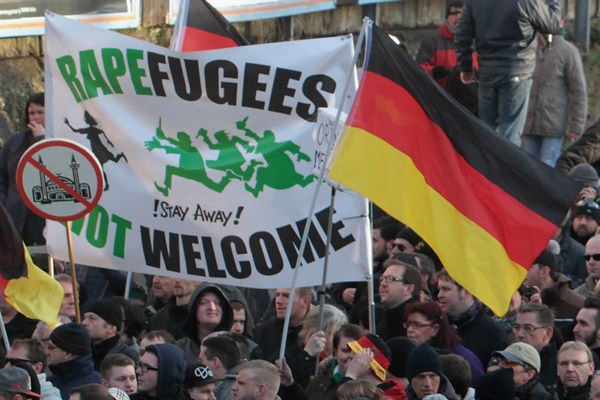Since Donald Trump won the U.S. presidential election, white nationalists have gained new visibility, galvanized by the president-elect’s campaign rhetoric and his appointment as chief adviser of Steve Bannon, the former head of the far-right Breitbart News who is infamous for his ties to the so-called alt-right movement. In response, many Americans are bracing themselves for a long fight against the potential normalization of racist rhetoric, as hate crimes against minorities and women have already multiplied across the country.
This trend is hardly a uniquely American phenomenon. Right-wing parties have also made gains in Europe, capitalizing on fear and insecurity linked to high-profile terrorist attacks and the migrant crisis. In Germany, in particular, Chancellor Angela Merkel has expended significant political capital on an open-door response to refugees that has earned her enemies across the political spectrum. With elections slated for 2017, Merkel’s prospects for re-election have dimmed, with the far-right Alternative for Germany (AfD) party rising in polls and making impressive showings in by-election results.
But the emergence of a new right-wing movement in Germany isn’t limited to the political class. The forces underpinning the AfD’s rise have galvanized grass-roots groups demanding an end to immigration and what they call the Islamization of Germany. Today, Identitare Bewegung (IB)—the Identity Movement for Germany—has gained particular prominence; it was put under surveillance by Germany’s intelligence services in August.

